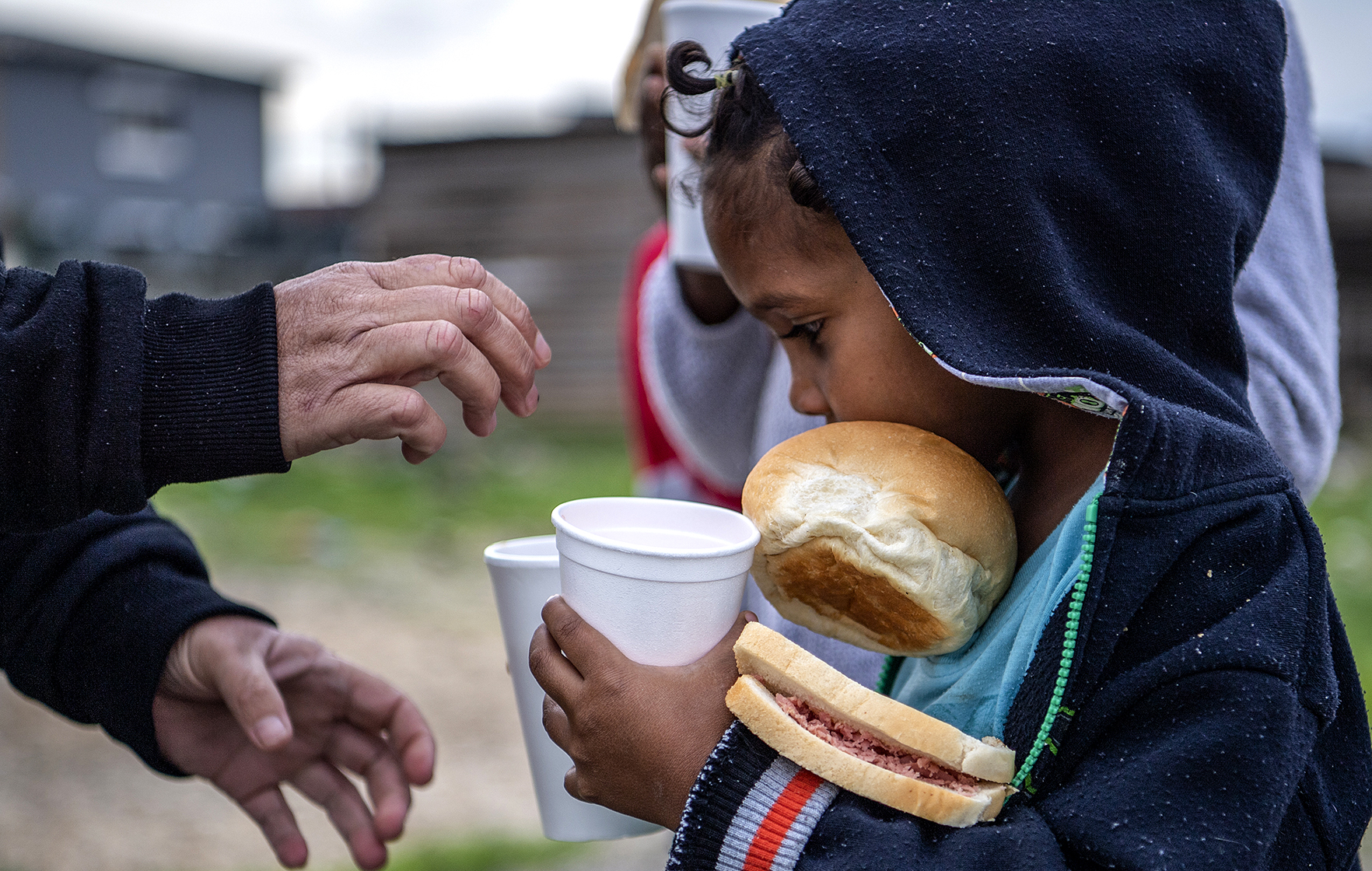As residents of South Africa, we have a constitutional right to food. And yet, almost two-thirds of the country’s population currently experience food insecurity. About 30% of our children under the age of five are stunted, which indicates long-term inadequate nutrition.
These levels of food insecurity and malnutrition have profound impacts on health, wellbeing and development. Urgent action is needed to improve food security and nutrition, and for the state to act on its obligation to protect, respect and fulfil the right to food.
Our research in South Africa and across the continent suggests that opportunities to meet the right to food could be enhanced by linking the right to food with the right to the city.
The connection between the right to food and the right to the city may not be immediately apparent, but let me explain. The framing of the right to food, and discussions of food insecurity, tends to focus primarily on issues of production and rights to land. While this is critically important, it is far from the whole story.
In their framing of the World Food Day theme for this year – “Right to foods for a better life and a better future” – the Food and Agriculture Organization (FAO) explain that by “foods” they mean diversity, nutrition, affordability, accessibility and safety. Meeting the right to food therefore requires us to look at the entire food system and related systems, and not just production.
Additionally, we need to face the reality that the vast majority of food insecure people in the world, and in South Africa, live in urban and peri-urban areas and depend on market sources for their food.
This year I led the Committee on World Food Security’s High Level Panel of Experts report on urban and peri-urban food systems. We found that contrary to popular imagination, more than two-thirds of the world’s food insecure people lived in urban and peri-urban areas.
Urban and peri-urban food security neglected
Around the world, and in South Africa, national food security and food system policies have neglected urban and peri-urban food security and nutrition and largely ignored the role of local governments in shaping food systems and food security and nutrition outcomes.
There is an urgent need to redirect food security and food system policy and investment to address this growing challenge, and to leverage on the potential of novel entry points to address food insecurity.
I argue that combining the right to food with the right to the city provides opportunities for addressing food security in all its aspects, and meeting other pressing development challenges.
The right to the city focuses on the idea that urban spaces should be inclusive, participatory and designed to meet the needs of all residents. It encompasses the right to have access to urban resources, including housing, public spaces and services.
The right to the city emphasises the importance of citizen participation in decision‐making processes related to urban development, including decisions about land use, infrastructure and public services. By working towards the right to the city, critical aspects of the state’s role in respecting, protecting and fulfilling the right to food can be met.
Three examples
To illustrate the connections between the right to the city and the right to food, I provide three brief examples.
Firstly, the informal food retail sector, including street vendors, is a crucial part of food security strategies for urban residents. They ensure access to affordable, nutritious and diverse foods.
And yet they are frequently marginalised – struggling to access permits to trade, or having stock confiscated. These actions not only undermine livelihoods and the right to the city of vendors, but also fail to respect and protect citizen’s right to food.
The ways in which governments engage informality with urban food systems has important consequences for the right to food for citizens and the right to the city for these food system actors. Creating an enabling environment for food vendors can support their right to the city, improve livelihoods, improve food safety and improve food security more generally.
The dynamics of food choice
Secondly, our work on understanding the dynamics of food choice in Cape Town and Worcester, as part of the Nourished Child project, has found that even if households have the financial resources to meet their food needs, their ability to safely store and cook food is profoundly affected by poor housing, poor access to safe and reliable water supply, and expensive and unreliable energy.
Earlier this year, The Lancet identified improved housing as a pivotal entry point to improve public health and a crucial element of the right to the city. Failures in realising the right to the city undermines the right to food. Linking food security strategies to urban development and infrastructure programming works towards the state’s obligation to fulfil the right to food in innovative ways that improve nutrition and quality of life more broadly.
Finally, a critical part of the right to the city is the role of citizen participation in local decision-making processes. Enhancing the capacity of communities to engage the state on issues of improving access to public services can play an important role in improving food security and the right to food.
For example, in Masiphumelele, Cape Town, the Masi Ambassadors programme has been working with local authorities to create supportive regulations that encourage healthy food consumption while ensuring food safety standards are met.
This involves the ambassadors engaging with environmental health officers and then using this knowledge to work with street vendors and community kitchens to increase their capacity to prepare and store food safely and hygienically, and therefore qualify for Certificates of Acceptability from the City.
In a context of a predominantly urban country, actions towards creating equitable and inclusive urban spaces are central to ensuring the respecting, protecting and fulfilment of the right to food. DM
Jane Battersby is an Associate Professor in the Department of Environmental and Geographical Science at the University of Cape Town.




